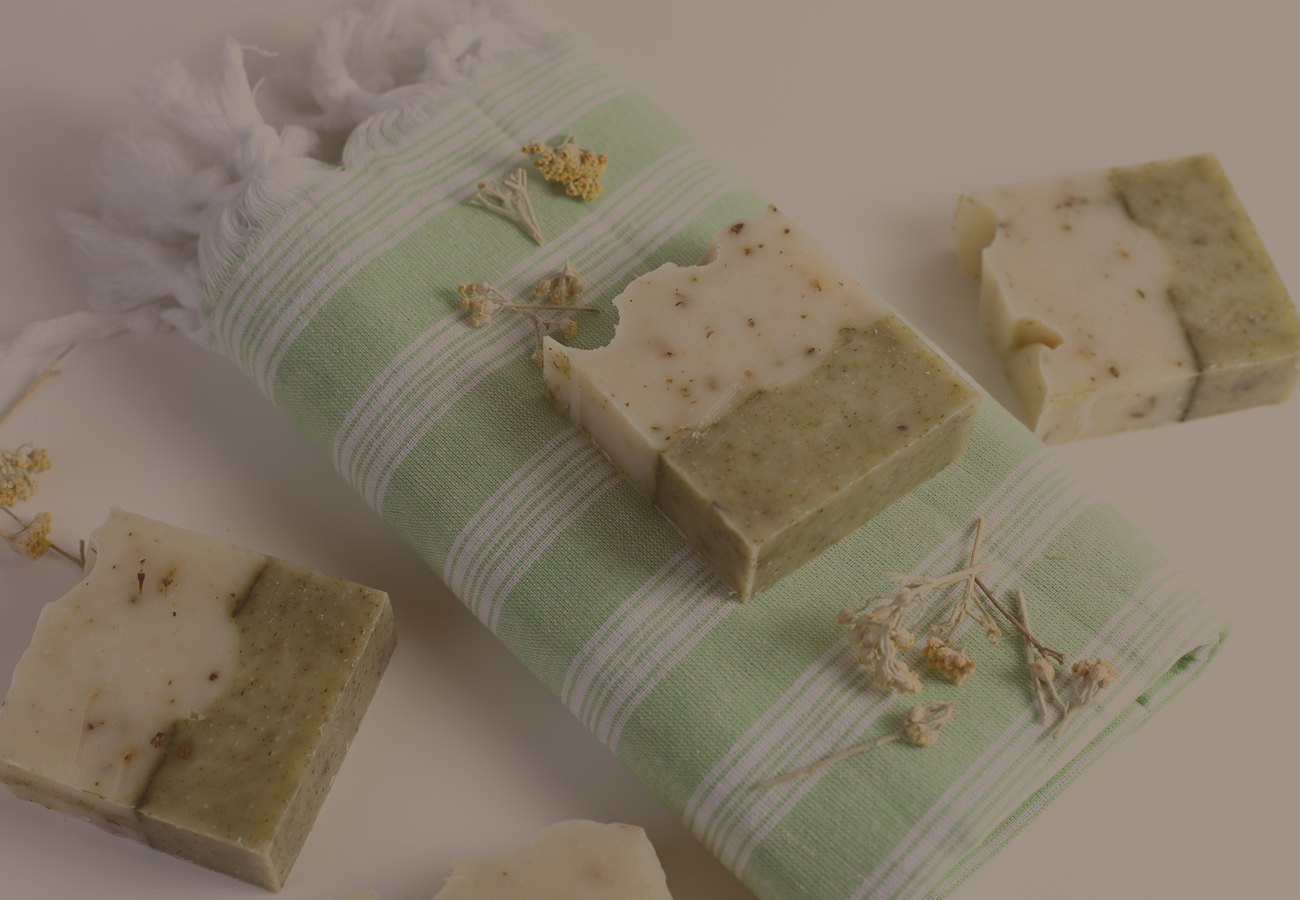Introduction
In recent years, there has been a growing interest in natural and eco-friendly alternatives to everyday products. Among these, natural handmade soap has gained remarkable popularity. Unlike mass-produced commercial soaps, which often contain synthetic detergents, artificial fragrances, and harsh chemicals, handmade soap is crafted with natural oils, butters, and botanicals. This makes it not only gentle on the skin but also better for the environment.
For people who care about what they put on their bodies, handmade soap offers a healthier, safer, and more sustainable choice. In this comprehensive guide, we will explore the many benefits of natural handmade soap—from its skin-loving ingredients to its environmental advantages, and even the lifestyle values it represents.
What Is Natural Handmade Soap?
Natural handmade soap is typically produced in small batches using traditional methods such as cold process or hot process soap making. The ingredients are often plant-based oils and butters, like olive oil, coconut oil, shea butter, and cocoa butter, combined with natural additives such as essential oils, herbs, clays, and exfoliants.
Unlike commercial soaps, handmade varieties retain glycerin, a natural byproduct of the soap-making process that acts as a humectant, drawing moisture to the skin. Commercial soap manufacturers often remove glycerin to sell separately, making their products harsher and more drying.
1. Gentle on Sensitive Skin
One of the most significant benefits of natural handmade soap is its gentleness. People with sensitive or reactive skin often find commercial soaps irritating because they contain synthetic fragrances, sulfates, and parabens. Handmade soap, however, relies on mild, natural ingredients.
-
No harsh detergents → Handmade soap avoids sodium lauryl sulfate (SLS), which strips away natural oils.
-
Essential oils instead of synthetic fragrance → Lavender, chamomile, or tea tree oils add therapeutic benefits.
-
Soothing additives → Ingredients like oatmeal or aloe vera calm irritation and inflammation.
This makes handmade soap a safer choice for individuals with eczema, psoriasis, rosacea, or general skin sensitivity.
2. Naturally Moisturizing
Thanks to the natural oils and glycerin it contains, handmade soap provides deep hydration without the need for artificial moisturizers. When you wash with natural soap, you are cleansing your skin while simultaneously nourishing it with fatty acids and vitamins.
-
Shea butter → rich in vitamin A and E, promotes skin healing.
-
Olive oil → deeply moisturizing and high in antioxidants.
-
Coconut oil → provides a rich lather while protecting the skin barrier.
Instead of leaving your skin feeling tight and dry, natural handmade soap helps maintain balance and hydration.
3. Free from Harmful Chemicals
Most commercial soaps contain a cocktail of preservatives, detergents, and artificial coloring agents. Over time, these can disrupt the skin barrier and cause dryness, irritation, or allergic reactions. Handmade soap is generally:
-
Paraben-free
-
Sulfate-free
-
Phthalate-free
-
Artificial dye-free
By avoiding these chemicals, handmade soap reduces the risk of long-term skin damage while providing a safer cleansing option for daily use.
4. Rich in Nutrients and Antioxidants
Because handmade soap is crafted with natural oils and butters, it is loaded with skin-friendly nutrients. Many of these oils are unrefined, retaining their natural vitamins, minerals, and antioxidants.
-
Vitamin E → fights free radicals and promotes youthful skin.
-
Essential fatty acids → help maintain skin elasticity and softness.
-
Botanicals and herbs → such as calendula, chamomile, and green tea provide anti-inflammatory properties.
These nutrients nourish the skin instead of stripping it, giving handmade soap an advantage over conventional cleansers.
5. Environmentally Friendly
Handmade soap is better for the planet. Many natural soap makers focus on sustainable sourcing and eco-conscious packaging, making it an environmentally responsible choice.
-
Plastic-free packaging → often wrapped in recyclable paper or biodegradable materials.
-
Biodegradable ingredients → natural oils and botanicals break down harmlessly in water.
-
Small-batch production → reduces industrial waste and carbon footprint.
By choosing handmade soap, you support eco-friendly practices that reduce plastic waste and pollution.
6. Cruelty-Free and Ethical
Many handmade soap brands are dedicated to cruelty-free testing and ethical sourcing. Unlike big companies that may use animal testing or unsustainable palm oil, small-batch soap makers often prioritize transparency and fairness.
-
Vegan options → many soaps are made without animal fats.
-
Fair trade ingredients → shea butter and cocoa butter sourced ethically.
-
No animal testing → ensuring safety without harming animals.
For consumers who value ethical choices, handmade soap is a perfect fit.
7. Unique and Customizable
Handmade soap isn’t just functional—it’s also beautiful and customizable. From vibrant swirls of natural color to soothing herbal infusions, each bar is often one-of-a-kind.
-
Variety of scents → lavender, peppermint, citrus, or unscented.
-
Custom shapes and designs → perfect for gifts or personal luxury.
-
Targeted formulas → soaps designed for acne-prone, dry, or aging skin.
This artistic touch adds a sense of luxury to daily routines.
8. Support for Small Businesses
When you buy handmade soap, you are often supporting small artisans and local businesses rather than large corporations. This means your purchase has a direct, positive impact on communities and families.
-
Encourages sustainable entrepreneurship
-
Keeps traditional crafts alive
-
Builds stronger consumer-producer relationships
Every bar you buy helps promote a culture of mindful consumption.
9. Aromatherapy Benefits
Handmade soaps often use essential oils, which don’t just smell nice but also provide therapeutic effects.
-
Lavender → calming and stress-relieving
-
Peppermint → refreshing and invigorating
-
Tea tree → antibacterial and clarifying
-
Eucalyptus → soothing for colds and congestion
This transforms a daily shower into a rejuvenating aromatherapy session.
10. Long-Term Skin Health
Over time, using natural handmade soap contributes to healthier skin overall. By avoiding harsh chemicals, nourishing the skin barrier, and providing hydration, handmade soap promotes:
-
Reduced irritation and breakouts
-
Improved skin texture
-
Better moisture retention
-
A natural, healthy glow
Consistency is key, and switching to natural soap can have lasting effects.
Common Myths About Handmade Soap
1. “Handmade soap doesn’t clean as well as commercial soap.”
False. Natural oils and botanicals are highly effective at cleansing while being gentle.
2. “It’s too expensive.”
While the price may be slightly higher, handmade soap lasts longer and provides skin care benefits, reducing the need for extra products.
3. “It melts too quickly.”
Properly cured handmade soap is long-lasting. Using a soap dish that drains water prevents waste.
4. “Only for people with sensitive skin.”
Handmade soap benefits everyone—whether you have dry, oily, acne-prone, or normal skin.
FAQs
Q1. Can handmade soap help with acne?
Yes. Soaps with tea tree oil, charcoal, or clay can help manage acne by reducing excess oil and bacteria.
Q2. Is handmade soap safe for children?
Yes, fragrance-free and gentle options are safe for kids’ sensitive skin.
Q3. Can handmade soap be used on the face?
Yes, but choose formulas designed for facial skin, usually with mild oils like jojoba or almond.
Q4. Does handmade soap expire?
Typically, it lasts 1–2 years. Over time, the scent may fade, but it remains safe to use.
Q5. How should I store handmade soap?
Keep it in a dry, cool place on a draining soap dish to prolong its lifespan.
Q6. Is handmade soap better than body wash?
Yes, it often has fewer chemicals, more nutrients, and no plastic packaging.
Q7. Can handmade soap be customized?
Absolutely. Many artisans create custom batches with specific scents, colors, and ingredients.
Q8. Does handmade soap lather well?
Yes, especially if made with coconut oil or castor oil for a bubbly lather.
Q9. Is it safe for eczema?
Yes, fragrance-free and oatmeal-based handmade soaps can soothe eczema-prone skin.
Q10. Why does handmade soap feel different from commercial soap?
Because it retains natural glycerin, making it creamier and more moisturizing.
Conclusion
Natural handmade soap is more than just a cleansing product—it’s a healthier, more sustainable lifestyle choice. From nourishing the skin to protecting the planet, it offers countless benefits that mass-produced commercial soaps simply cannot match. By switching to handmade soap, you’re investing in your skin’s long-term health, supporting ethical practices, and enjoying a touch of luxury in your everyday routine.

